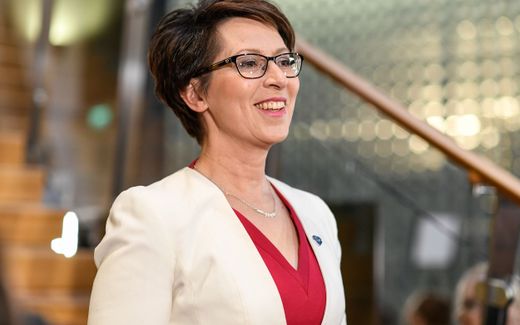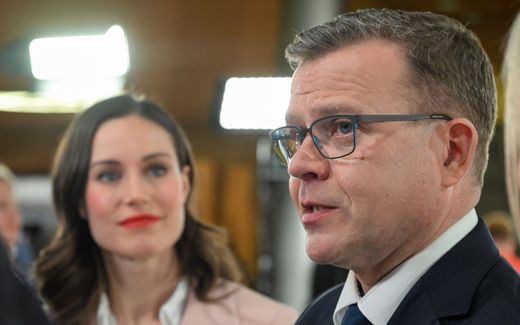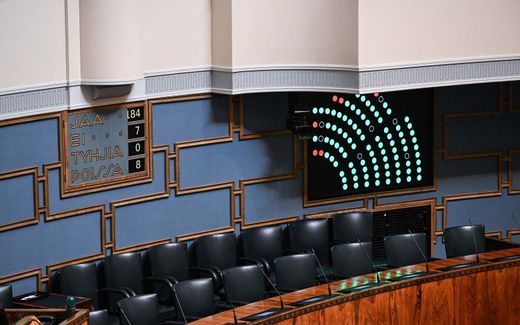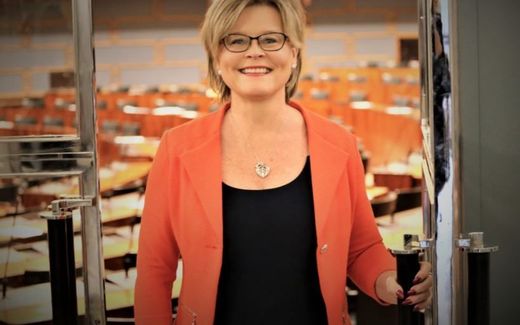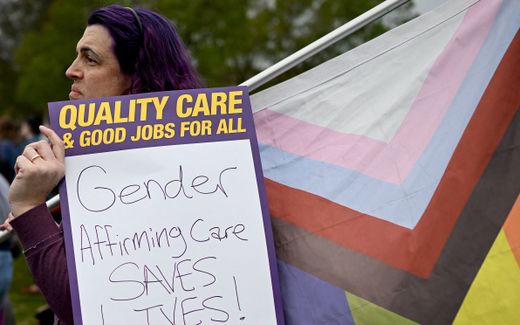New Finnish government chooses for Christian values
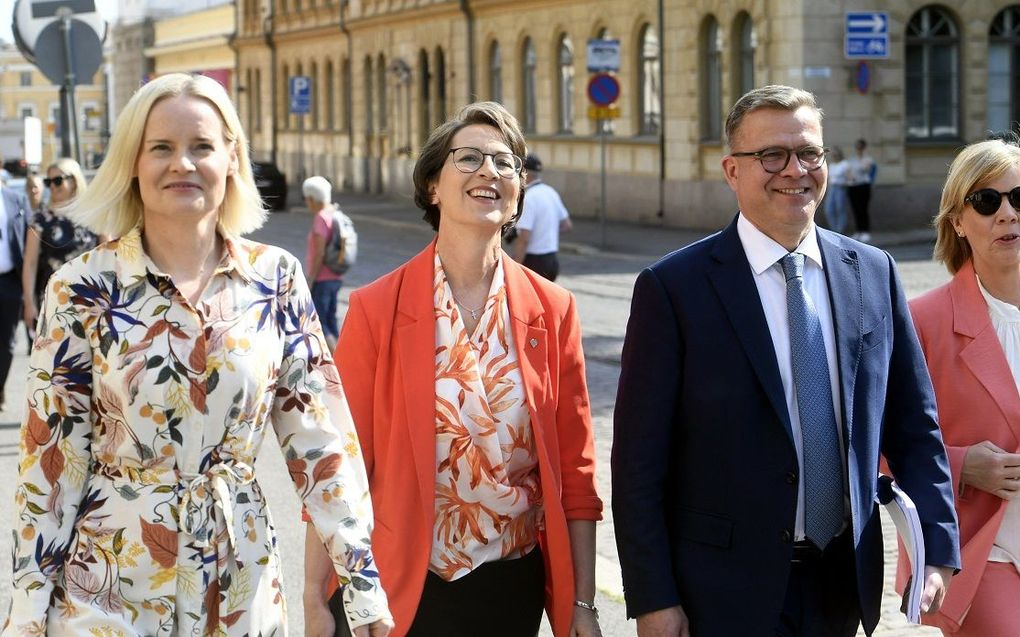
According to Sari Essayah (2nd left), party leader of the Christian Democrats, her party’s fingerprints are visible in the agreement. Photo AFP, Kimmo Penttinen
Northern Europe
Family values are central for the new Finnish government. In the coalition talks, the Christian Democrats have had a significant impact on medical and ethical issues.
It will be the “most right-wing government since World War II”, said the Finnish public broadcaster Yle on Tuesday. Although with four parties from the right side of the political spectrum, that should be no surprise, Yle goes even further.
According to an analysis, the new government of Petteri Orpo will continue where the centrist Juha Sipilä’s government left off in 2019. “In eight years, the pendulum has swung from one extreme to another”, the article reads. “The atmosphere is a bit like after a long party – a return to everyday life and belt-tightening.”
The 53-year-old Orpo is the party leader of the conservative National Coalition Party. He succeeds the Social Democrat Sanna Marin, who has been the leader of the Scandinavian country since 2019. Under her, Finland joined NATO and became one of Ukraine’s firmest supporters amid the Russian invasion. Orpo thus has big shoes to fill and plenty of challenges ahead.
What are the key issues for the Finnish coalition?
“Russia is still at war with Ukraine, and we are struggling with high-interest rates, inflation and public debt,” Orpo said on Friday at the presentation of the coalition agreement. This statement sums up the central election theme.
For Orpo, who has previously held several ministerial posts, cutting public spending was one of his focal points during the election campaign. Under Marin, the national debt had risen from 106 billion to 146 billion euros. Orpo wants this debt to shrink by cutting unemployment benefits, among other things. According to him, some 6 billion euros must be cut by the end of his term.

But there are other issues which Christian Democrats, in particular, spoke out about during the campaign. For example, too few children are being born in Finland, there is a lot of mental distress, and the health care system is not well equipped for palliative care.
How does the coalition intend to tackle this?
The coalition agreement presented Friday is over 250 pages long. While the new coalition wants to make cuts in many areas, support for families is actually going up. Families with children under three will receive more child support, and the allowance for single-parent families is also increasing.
According to Sari Essayah, party leader of the Christian Democrats, her party’s fingerprints are visible in the agreement. And indeed; especially the points about health care in the coalition agreement seem to match the program of the Christian Democrats. For example, the government wants to “promote building a child-friendly society.” It intends to pay particular attention to the well-being of families. Therefore, there should be more support for parents. Furthermore, the government wants to reduce abortion by improving contraceptive education.
In addition, the government wants to improve mental health care further. In cooperation with organisations and churches, for example, it wants to increase the supply of accessible facilities. This could include walk-in clinics.
One notable point in the coalition agreement concerns the European Union. The Euroskeptic Finnish party, which previously called for leaving the EU, is now at the table with the pro-EU National Coalition Party. That parties with conflicting ideologies form a coalition in Finland is not unusual.

Still, according to the British newspaper The Telegraph, Finland is now “on a collision course with Brussels” because it no longer wants to transfer any power to the EU. And despite that critical attitude towards the EU, the new coalition still wants the EU to play a stronger role as a geopolitical factor.
What role will the Christian Democrats play in the new government?
The Christian Democrats will have 1.5 ministerial posts. Party leader Essayah will lead the Ministry of Agriculture from this week. In two years time, the Christian Democrats will also lead the Ministry of Sports and Youth. For the first two years, that will be led by Sandra Bergqvist of the Swedish People’s Party in Finland. Who will take over from Bergqvist in two years has yet to be decided.
According to Essayah, the Ministry of Agriculture is a logical choice. In the daily newspaper Itä-Savo, she points out that the Christian Democrats is the only party that has drawn attention to agriculture in recent election campaigns. “This is a big concern for how Finnish agriculture and the food chain will fare. We want to influence the survival of Finnish agriculture, forestry and the countryside.”
Related Articles


